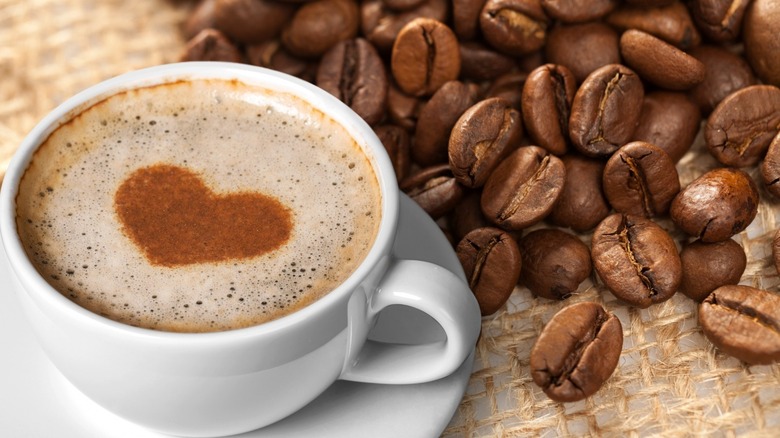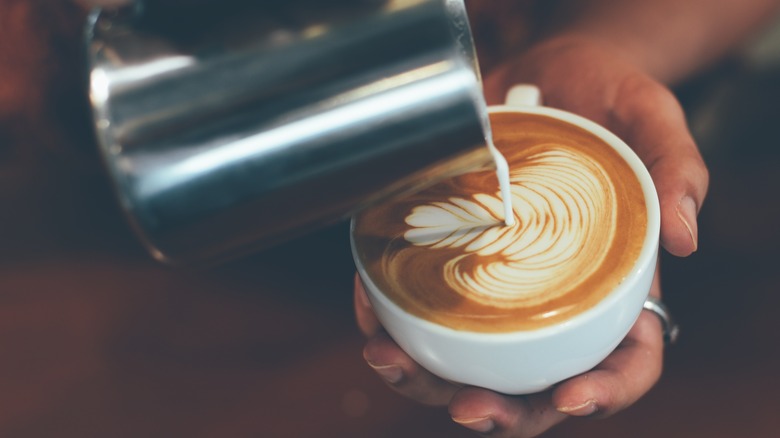Why Drinking Coffee Before Shopping Might Not Be The Best Idea
Coffee is a perfectly straightforward concoction at home — you just pour hot water onto some brown beans and instantly you have a warming, awakening beverage. But not all coffee is made equal.
While at home you can customize your coffees to include the milk, sugar, and humorous froth artwork to suit your taste, the same can't be guaranteed for coffees purchased while out and about — you don't know what's inside them. Caffeine is certainly inside them (unless you've gone decaf, obviously) — and it's caffeine that could be unexpectedly influencing your finances.
While takeout coffee can be costly enough in its own right (reaching an average of $3.92 a cup in Seattle, according to SavingSpot — imagine the cost of drinking even one of those a day), grabbing a quick caffeine boost before going shopping could be adding even more strain to your bank balance. Research by the University of South Florida has found that drinking coffee makes people purchase and spend more when shopping.
Retail stores are using coffee to boost sales
In a report that includes the subtitle "Skip the coffee before shopping," the University of South Florida conducted an experiment to assess the impacts of coffee consumption on consumer habits. Researchers set up espresso machines at the entrances to retail stores and found that customers that drank caffeinated coffee rather than decaf or water bought 30% more items and spent 50% more. Non-essential goods were found to be bought more by those who had drunk caffeine, and the experiment produced similar results for online shopping.
According to Better Health Charity, caffeine increases breathing and heart rates, as well as boosting alertness and energy. These effects, says the university's report, cause the increased retail transactions. "Retailers can benefit financially if shoppers consume caffeine before or during shopping," concludes The Hill.
Providing coffee in retail environments is already being used to enhance customer experiences, as well as diverting people from online marketplaces, notes Forbes. Scanomat explains that the availability of coffee in retail stores is designed to aid consumer loyalty, and encourage them to spend more time browsing items.

